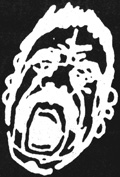 |
 THE
ORIGINAL RICKY-TICK CLUBS. THE
ORIGINAL RICKY-TICK CLUBS.During the early 1960s, the Ricky-Tick clubs were venues in the English home counties, in Windsor, Guildford, Croydon and Reading that attracted teenagers to hear blues, rock 'n' roll, jazz or rhythm 'n' blues music, often all night and always at least five days a week. American stars brought over by UK agents to play nationwide tours, would find themselves sub-booked to appear several sessions per night at different venues near London. The Ricky-Tick clubs, along with Eel Pie Island, London's "Flamingo" or "Marquee clubs were significant venues in this multi-gig, money-making circuit, whilst Sheffield's "Mojo-club", Newcastle's "Club Ago-go", Manchester's "Twisted Wheel", Hanley's "The Place", Nottingham's "Boat clubs" or various Universities took the other individual tour dates. If possible, an artist working, say at 10pm in Manchester, would be engaged to play in London or at a Ricky-Tick club sometime after tam.
RICKY-TICK
MUSIC. By 1964-66 a pattern of entertainment had been set. UK Musician's Union rules required that UK artists touring America had to be exchanged with USA artists performing in Britain. American blues exponents began to replace jazz musicians as UK youth sought out the original sounds from the American south. English groups such as the Yardbirds, Alexis Korner or the Rolling Stones and particularly their guitarists imitated the music of Robert Johnson, Muddy Waters and John Lee Hooker. The Ricky-Tick club was packed for such nights as audiences acclaimed performers such as Jimmy Reed, John Lee Hooker, Screamin' Jay Hawkins and Sonny Boy Williamson playing their blues. Moss Allison contributed a piano-based jazz/blues and Larry Williams, made famous by the Beatles covering his songs such as "Dizzy Miss Lizzie" and "Bonie Maronie", Chuck Berry or Bill Haley, supplied rock 'n' roll a decade after its original impact but still drew considerable numbers to witness "the originals". What every visiting American `name' needed was a British back-up band. The M.U. rules meant that it was too expensive or cumbersome to exchange back-up musicians in all but a few cases. Here was an opportunity for British bands to get close to their influences and learn from them first hand. Thus John Mayall and his Bluebreakers accompanied John Lee Hooker encouraging legendary British guitarist Eric Clayton. Long John Baldry, Rod Stewart and the Steampacket supported other visiting acts, and along the way convinced the young Reg Dwight he could become 'Elton John' a decade later. The Yardbirds gave several British guitarists valuable experience, so much so that Antonioni's "Blow up" film featured the Yardbirds with both Jeff Beck and Jimmy Page [later to lead Led Zeppelin] on guitar at a Ricky-Tick venue. Wednesday nights at the Ricky-Tick belonged to Surrey group, Phillip Goodhand-Tait and the Stormsville Shakers and when Larry Williams visited the UK in 1965 the "Storm svilles" not only backed him and his US guitarist Johnny 'Guitar' Watson on tour, but also recorded two albums [on the Decca and Sue labels] with him. Whilst many UK hands got their breaks and experience backing visiting US artists, others were contracted to the agents who both booked the bands and clubs. The Flamingo and All-Nighter club in London's Wardour Street was Mecca for these, being base for Georgia Fame and the Blue Flames, Zoot Money and his Big Roll Band, Chris Farlowe and the Thunderbirds and sometimes with US ex-military personal fronting, such as Bonnie Jones and the Nightimers or Geno Washington with the Ram Jam Band. All of these were headliners at the Ricky-Tick clubs too and the Stormsville Shakers (with Phillip Goodhand-Tait on vocals and electric piano) alternated with them at London venues and elsewhere. © 2005 Eveline Leonard Used by permission. |